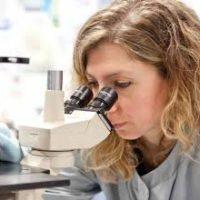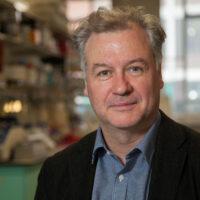
Almost 100 years ago, Otto Warburg discovered that cancer cells exhibit an altered metabolism: switching from oxidative phosphorylation to aerobic glycolysis (now termed the Warburg effect). Although quiet for many years, the field of cancer metabolism has experienced a revolution in the last decade. It is now recognized as one of the hallmarks of cancer, and metabolism research is rapidly evolving and expanding to unveil new pathways and molecular mechanisms beyond the Warburg effect: for example, changes in the metabolism of sugars, lipids, amino acids and other sources of energy. As a result, new therapeutic approaches targeting cellular metabolism are being tested with varied success in different cancer types, expanding the range of current treatment options.
The BCI Cancer Metabolism Hub is a community of research groups who are investigating the fundamental metabolic alterations that take place in human cancers, translating these novel discoveries into clinical advances. The work performed by this group encompasses the whole range of translational research from understanding the basic science of cancer metabolism, through to leading advanced phase clinical trials of novel anti-metabolic therapies in cancer patients.
Meet the BCI Cancer Metabolism Hub members
Key Publications from the Cancer Metabolism Hub
- Pegargiminase Plus First-Line Chemotherapy in Patients With Nonepithelioid Pleural Mesothelioma: The ATOMIC-Meso Randomized Clinical Trial. JAMA Oncol. 2024 Apr 1;10(4):475-483. doi: 10.1001/jamaoncol.2023.6789. PMID: 38358753
- Vitamin B5 and succinyl-CoA improve ineffective erythropoiesis in SF3B1-mutated myelodysplasia. Sci Transl Med. 2023 Mar;15(685):eabn5135. PMID: 36857430
- Mannose metabolism inhibition sensitizes acute myeloid leukaemia cells to therapy by driving ferroptotic cell death. Nature Commun (2023) 14(1):2132. PMID: 37059720
- PHGDH is required for germinal center formation and is a therapeutic target in MYC-driven lymphoma. The Journal of Clinical Investigation (2022) 2;132(9):e153436. PMID: 35316216
- Reversal of mitochondrial malate dehydrogenase 2 enables anaplerosis via redox rescue in respiration-deficient cells. Molecular Cell (2022) Oct 31;S1097-2765(22)00962-5. PMID: 36327975
- MYC sensitises cells to apoptosis by driving energetic demand. Nat Commun (2022) 13(1):4674. PMID: 35945217
- Adipocytes disrupt the translational programme of acute lymphoblastic leukaemia to favour tumour survival and persistence. Nat Commun (2021) Sep 17;12(1):5507. PMID: 34535653
Major Funders
- Barts Charity
- Cancer Research UK
- Medical Research Council
- Blood Cancer UK
- Wellcome Trust
- Academy of Medical Sciences
- European Hematology Association Bilateral Collaborative Grant
- Medical College of St. Bartholomew’s Hospital Trust











